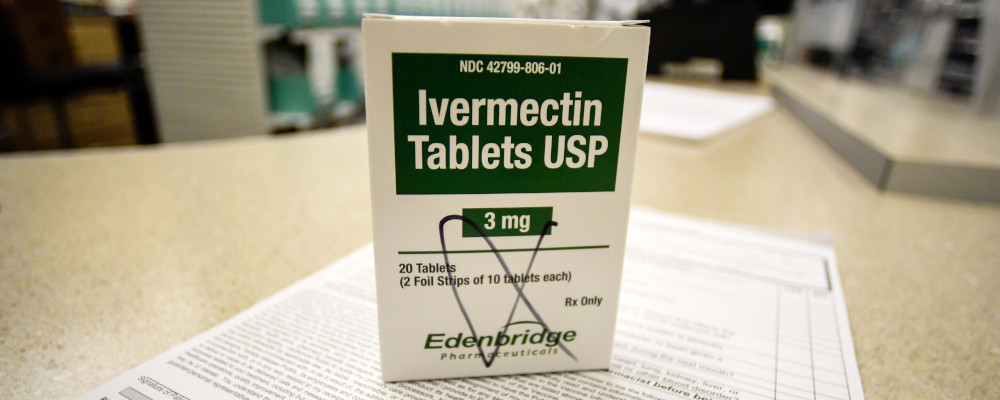We now have to deal with the ongoing frustration and risk of yet another COVID-19 wave caused by the Omicron variant.
Data from South Africa confirms very high rates of transmission and likely significantly lower virulence than Delta. Ontario has seen a dramatic rise in cases with rapidly increasing detection of Omicron and an early increase in hospitalization. Even if this variant is less dangerous, any large spike in cases will impact availability of other health care. Current vaccines are less effective against Omicron. I have urged increased rates of booster shots, which increase protection from severe illness.
Ontario has finally ramped up availability and has now decided to offer all adults a booster shot three months or more after their second shot to decrease risk of infection.
Despite the common knowledge of the importance of boosters I continue to get e-mails from people who don’t share my viewpoint. I appreciate a thoughtful discussion of differing points of view as an important expression of free speech. I can understand and be sympathetic to not wanting restrictions to our quality of life and freedom.
While there is much disinformation sent out, it is important to not dismiss reasonable concerns or reject alternative treatment options. We need to distinguish science from pseudoscience. I try to respectfully research the information shared and evaluate its validity.
Steve Kirsch is a highly successful Silicon Valley entrepreneur who early in the pandemic started the COVID-19 Early Treatment Fund (CETF) to find approved drugs that could be repurposed to fight COVID-19 infection. CETF funded studies on the antidepressant fluvoxamine as well as hydroxychloroquine both of which had preliminary anecdotal studies suggesting benefit.
Kirsch railed against the results of studies of hydroxychloroquine which did not show enough benefit to be used widely as an alternative to vaccination, claiming they were poorly done. He promoted fluvoxamine as a wonder drug before peer reviewed ongoing trial data was in yet. In May all 12 respected members of his CETF scientific advisory board, who initially supported his research resigned when his views were felt to be unsubstantiated and inaccurate. Kirsch claims that mRNA vaccines kill more people than they save, at a rate of 1 per 1,000 people treated. This misinformation goes to over 22,000 followers and continues to be circulated widely. The persisting narrative from his messaging is that politicians, scientists and drug companies are promoting expensive and dangerous vaccines for personal gain, while trying to suppress cheap and effective treatments.
Many physicians have raised concerns about vaccination. Dr. Daniel Nagase has falsely reported high Canadian stillbirth rates in British Columbia and Waterloo, Ontario, all presumably in vaccinated mothers. There is no hard evidence that this is true. The hospitals cited have denied this. His counter-argument is that hospitals are allowed to lie. If there truly was an excess of stillborn births worldwide, we would have had extensive reports as we did when myocarditis and blood clots were real but rare complication of vaccination.
Another concern being hyped is that deaths in vaccinated people are higher than in those unvaccinated. These claims do not take into account differences in age and risks. Jeffrey Morris, a statistician who likes to debunk the false science of excess vaccination deaths, published a tongue-in-cheek piece that people under 60 who only watched the 1984 Ghostbusters movie are twice as likely to die as people who only watched the 2021 Ghostbusters movie. This was in response to misinformation that those age 10-60 who were vaccinated had a higher death rate than those unvaccinated. “I don’t know how to explain this other than movie-caused mortality. I was told by everyone that the 1984 Ghostbusters movie was safe and amusing, and never anticipated it could be so dangerous to young people! It appears the 2021 film is MUCH safer, and strongly preferred, but this fact has been hidden by conspiracy.”
Perhaps the uncorrected higher average age of the people watching the 1984 rather than the 2021 film has something to do with a higher death rate rather than movie induced mortality.
It is important to keep an open mind about the potential benefits of repurposed drugs, but claims have to be supported by quality science. Hydroxychloroquine was hyped as a cure for the virus with little hard evidence and is now generally rejected as a treatment option. Ron Johnson, a Republican senator from Wisconsin recently suggested that gargling with mouthwash can kill the virus despite the fact that transmission is airborne and through your nose as well. His comments simply leave a bad taste in your mouth.
Ivermectin trials have been analyzed by those both for and against the use of the drug. Many of the studies have flaws that limit their conclusions. Combining studies in a meta-analysis has also been widely critiqued. My assessment is that there probably is some benefit to early or even prophylactic use, but that it is not a game changer and certainly not an argument against vaccination. However, it should not simply be dismissed as horse medicine.
Fluvoxamine is an antidepressant drug often used to treat obsessive compulsive disorders. It has some important anti-inflammatory and possible anti-viral effects. Earlier this year its anecdotal benefits were highlighted in a 60 Minutes piece about its use off-label by a race track manager as well as beneficial early trial data. Real science is now coming out. The TOGETHER trial, recently published in the Lancet was a high quality, randomized trial comparing fluvoxamine to placebo in 1,497 higher risk, symptomatic, infected people with an average age of 50. The outcome measured the need for hospitalization (a small number had prolonged ER stay as a surrogate for hospital stay) and death. Fluvoxamine treated patients had a significantly lower rate of hospitalization of 11 percent versus 17 percent and a fewer deaths, with 17 deaths versus 25 deaths. This was on the analysis of an intention-to-treat basis. If the comparison was made on a per-protocol analysis, that is those who completed their allocated treatment, there was one death in the fluvoxamine group and 12 in the placebo group. There was no difference in side effects between treated and placebo patients this documenting safety.
Compare this dramatic benefit to the Merck trial for their much heralded anti-viral drug Molnupiravir. Interim analysis through day 29 of 762 randomized patients showed 7.3 percent of treated patients were hospitalized with no deaths, compared to 14.1 percent in the control placebo group with eight deaths. By the time full results were available for FDA submission, the drug’s benefit in reducing hospitalization dropped from 50 to 30 percent leading to only narrow FDA approval. A skeptic might reasonably ask why Molnupiravir was approved with similar or lower efficacy than the much less expensive fluvoxamine which has a much longer history of safety. Concern was raised by an FDA reviewer that Molnupiravir might possibly promote a mutated strain and lead to spread of enhanced infection in others, if the full course of treatment isn’t completed. The similar Pfizer anti-viral Paxlovid had a 90 percent reduction in hospitalization or death and is thus the better choice in this category. The drug awaits FDA approval which it is highly likely to get.
Since fluvoxamine is already an approved drug, it could potentially be used off-label, that is for an unapproved indication such as for early COVID-19 infection in people at risk of bad outcomes. This should be approved by regulatory bodies so as not to jeopardize physicians prescribing it, given the high degree of politicization and criticism of alternative therapies.
Pharma companies have paid large financial penalties in the past for misstating results or drug benefits. The opioid crisis was fueled by the greed of a small number of companies and a large number of prescribers. Distrust of politicians has spilled over to scientists and business leaders in general as shown by conflicting interpretation of the “facts.”
We need to make decisions based on the correct interpretation of the science which can at times be conflicting or confusing. While the interpretation of the truth is sometimes elastic and can be stretched, disinformation can break your spirit and put you at risk. In the words of Oscar Wilde, “the truth is rarely pure and never simple.” Good science interpreted correctly is what we need to follow, whatever it shows.
Recommended for You

Everyone’s managing decline. I’m exploring a run for Ontario Liberal leader to fight for growth

‘He has to persuade people’: What’s at stake for Poilievre at the CPC convention

8 things to watch for as Conservatives gather in Calgary for party convention

‘The mainstream media forfeited so much trust’: Former New York Times editor on how activism kills journalism




Comments (0)